 National High-Tech Enterprise
National High-Tech Enterprise
 WhatsApp
WhatsApp
 Pyrolysis Plant For Sale from TOP Manufacturer
Pyrolysis Plant For Sale from TOP Manufacturer
 National High-Tech Enterprise
National High-Tech Enterprise

 June 27, 2025
June 27, 2025Choosing the right biomass raw material is key to maximizing the value of your charcoal production. The inherent properties of materials like wood, agricultural waste, and fruit shells significantly influence the final charcoal’s quality and its ideal applications. As a professional carbonization equipment manufacturer, DOING provides you with professional guidance. This article lists diverse biomass ingredients for charcoal and explores their suitability for different industrial and commercial uses.
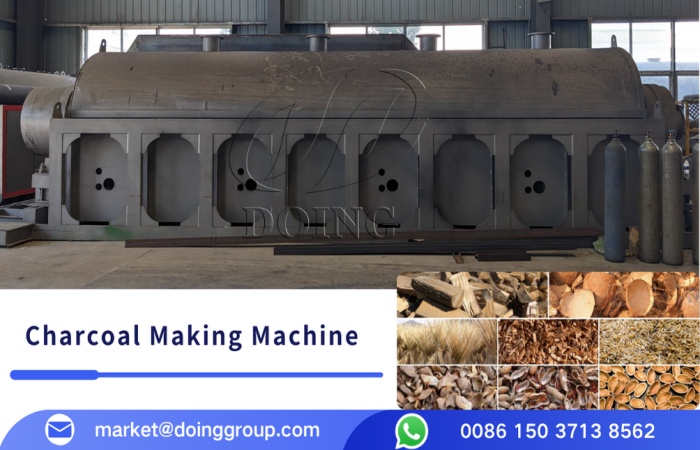 Biomass materials for charcoal production equipment
Biomass materials for charcoal production equipment
First of all, from the perspective of hardwood raw materials, this type of wood includes oak, birch and other high-density wood. After professional carbonization, it can produce high-calorific value, low-ash high-quality charcoal, which is particularly suitable for use as high-end barbecue charcoal and metallurgical reducing agent. Its stable and long-lasting combustion characteristics also make it an ideal choice for civilian heating. In contrast, softwood raw materials such as pine and fir are easy to ignite and have low costs, but due to the high resin content, more smoke will be produced when burning. This type of charcoal is more suitable for use as fast-burning charcoal or industrial fuel, and can also be used for food smoking to give it a special flavor. Brazil, East Asia, Europe and Africa prefer hardwood as raw material for charcoal production.
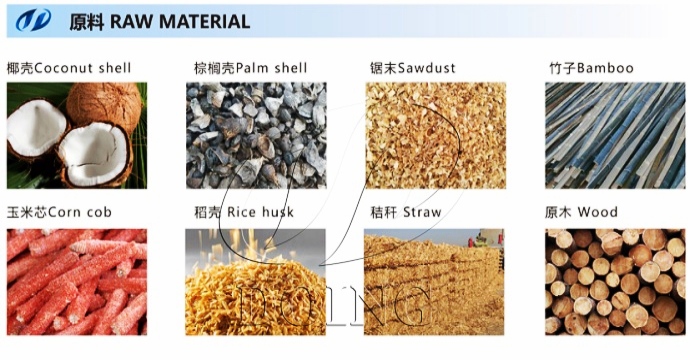 Biomass ingredients for charcoal production equipment
Biomass ingredients for charcoal production equipment
Fruit shell materials such as coconut shells and olive pits will produce charcoal with extremely high hardness after carbonization. Its developed pore structure makes it the best biomass ingredients for making activated carbon, which plays an irreplaceable role in water purification, air purification and other fields. For example, the output of coconut shell charcoal in the Philippines is relatively large, and the output of Brazilian palm shell charcoal is also large. The United States, Europe and Japan produce charcoal from walnuts/olive kernels.
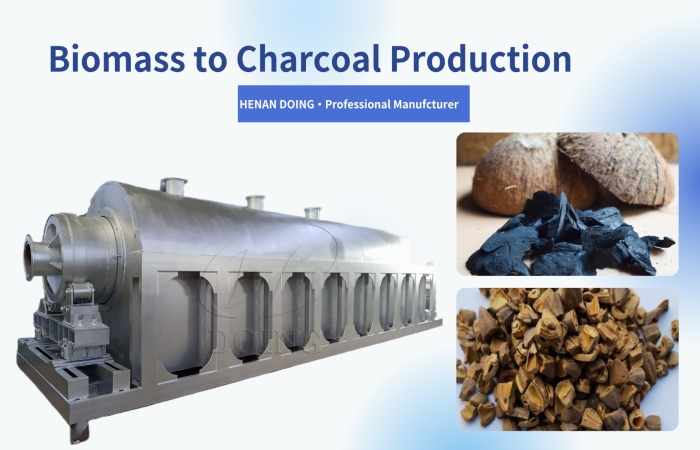 Palm kernal/olive kernels for charcoal making
Palm kernal/olive kernels for charcoal making
Although the biomass ingredients cost of agricultural waste such as straw and rice husk is extremely low, the ash content after carbonization is relatively high. This type of charcoal is mainly used for soil improvement or as industrial boiler fuel and needs to be specially treated to increase its use value.
Bamboo charcoal occupies a special position in the fields of dehumidification and health care products due to its unique adsorption properties, while sawdust charcoal, due to its granular characteristics, is mainly used as a raw material for machine-made charcoal or for making products such as mosquito coils. These types of raw materials are relatively common and are widely used in various fields around the world.
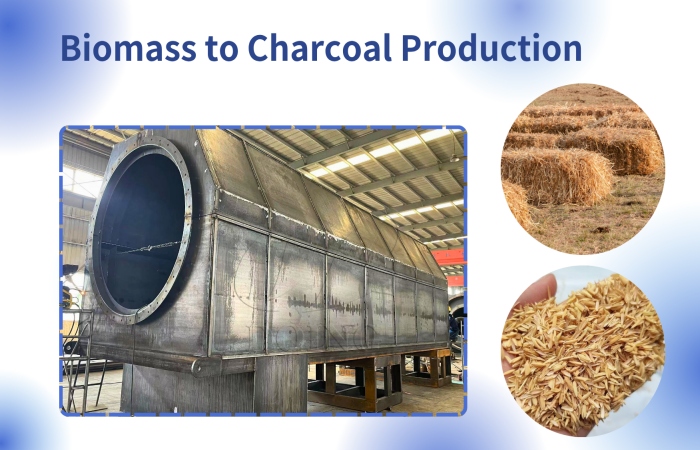 Sawdust/rice husk for biochar production equipment
Sawdust/rice husk for biochar production equipment
When choosing the right biomass ingredients for charcoal carbonization production equipment, the purpose of the final product must be considered. DOING professional carbonization equipment can be customized according to the characteristics of different biomass raw materials. Whether it is hardwood raw materials that require high temperature and slow carbonization, or agricultural waste that needs to be briquetted first, our equipment can achieve the best carbonization effect. We provide a full-process solution from raw material testing to on-site equipment installation to ensure that customers can produce the most competitive charcoal products according to market demand.
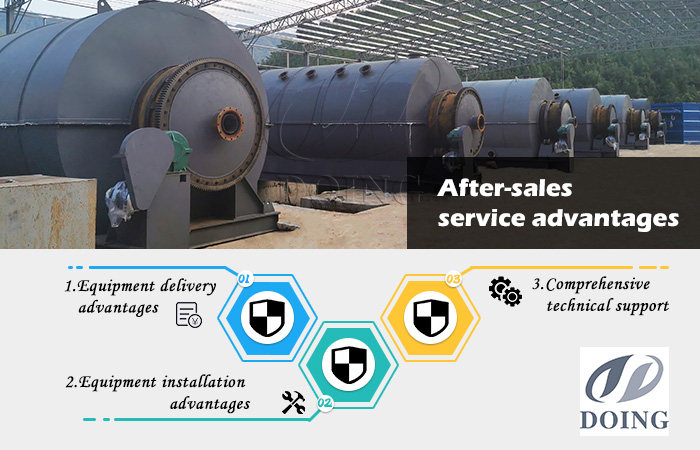 Charcoal production equipment manufacturer services
Charcoal production equipment manufacturer services
If you need to know the carbonization solution that best suits your business needs, please feel free to contact our technical team for professional advice.
Please feel free to leave your contacts here and your privacy is protected. A competitive quotation will be provided according to your detailed requirement within one business day.